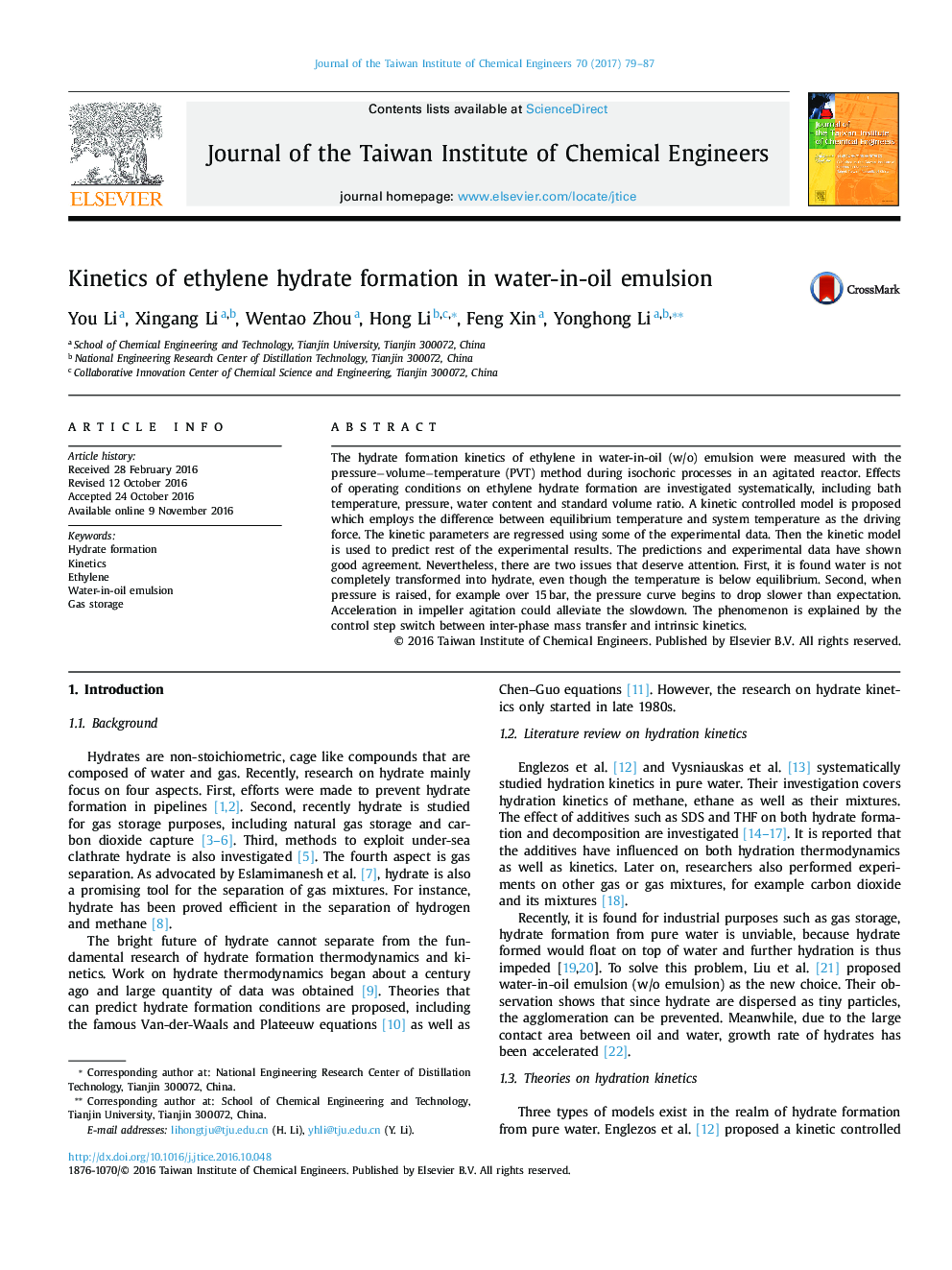| Article ID | Journal | Published Year | Pages | File Type |
|---|---|---|---|---|
| 4998887 | Journal of the Taiwan Institute of Chemical Engineers | 2017 | 9 Pages |
â¢Experiments are performed and a kinetic controlled model is proposed.â¢Simultaneous method is employed for parameter regression.â¢Temperature evolution of emulsion is considered.â¢Partial water transformation is observed.â¢At high pressure, agitation should be enhanced for rapid hydrate formation.
The hydrate formation kinetics of ethylene in water-in-oil (w/o) emulsion were measured with the pressureâvolumeâtemperature (PVT) method during isochoric processes in an agitated reactor. Effects of operating conditions on ethylene hydrate formation are investigated systematically, including bath temperature, pressure, water content and standard volume ratio. A kinetic controlled model is proposed which employs the difference between equilibrium temperature and system temperature as the driving force. The kinetic parameters are regressed using some of the experimental data. Then the kinetic model is used to predict rest of the experimental results. The predictions and experimental data have shown good agreement. Nevertheless, there are two issues that deserve attention. First, it is found water is not completely transformed into hydrate, even though the temperature is below equilibrium. Second, when pressure is raised, for example over 15Â bar, the pressure curve begins to drop slower than expectation. Acceleration in impeller agitation could alleviate the slowdown. The phenomenon is explained by the control step switch between inter-phase mass transfer and intrinsic kinetics.
Graphical abstractDownload high-res image (139KB)Download full-size image
